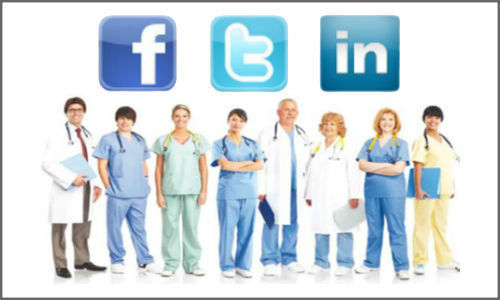EPO : Renaloo et la FNAIR écrivent au Directeur Général de l’Offre de Soins
21/03/2014Doctors on Twitter: Worldwide growth mapped, 2006-2014
22/03/2014Evolving Role of Social Media in Healthcare Sector
We all know that technological advances have revolutionized the healthcare sector and social media is rapidly transforming this sector. Because it is cost-effective and an easily accessible platform, a significant amount of healthcare practitioners, doctors, family members, patients and specialists have taken to social media to bring about a more impactful treatment and care. People in the healthcare sector are using social media to find and share information about health plans, medical treatments and doctors. The healthcare sector is a breeding ground for disruption where issues like misinformation, security and confidentiality exists, but social media and other technologies can alter the healthcare experience for the parties involved. Countless processes from management of health records to patient services can be augmented and there is plenty of scope. As it is, Google Glass, nurses equipped with iPads and patients strapping NFC embedded identification tags are already on the scene and are a reality. But the presence of social media can contribute immensely towards organizational transparency, efficiency, treatment efficacy and increased communication.
How Social Media Can Benefit Patients?
• In certain cases, patients do not have to physically travel to visit a doctor about a cold. They can obtain basic medical advice from professionals within their network. Social media enables faster dissemination of medical information.
• Social media users are growing increasingly accustomed to sharing personal information online. Users can comment on an article on health to posting a status update. Furthermore, patients are actively engaging with other patients and their family members to exchange notes on ailments, treatments and prescriptions.
• Niche social networking sites have been developed by patients and their family members which enables them to focus on specific patient communities and diseases. Patients and their family members can access testimonials, reports, forums and other relevant information.
How Social Media Can Benefit Doctors?
• Incorporation of social media strategy can significantly augment and improve communication, feedback and offer superior service in healthcare.
• A quartet of hospitals already have a social media presence and 60% of doctors have positively reported that social media has improved quality of healthcare. Using social media, doctors can build brand loyalty and a network of patients who can have better access to healthcare professionals and services.
• A powerful content management system can empower members to post blogs and articles related to healthcare. These interesting and informative articles and blogs can be shared with millions of people across the world using powerful social medium networking tools like Facebook, Twitter and YouTube.
• Using Google Hangouts, doctors can remain connected with their past patients. This is the most inexpensive and innovative way of using this technology and retaining patients.
• Through social media, doctors can aim for a more patient-centric model in healthcare with transparency.
• If doctors and hospitals maintain a proactive social media presence, then they can resolve patient queries with efficacy, leading to patient satisfaction and loyalty. When patients have such access, it can lead to better health outcomes.
Social media platforms present a wealth of opportunities for the healthcare industry. If patients and doctors empower themselves by using technology like social media, then they can steer healthcare sector to another level altogether.
See on www.blogbigtime.com




